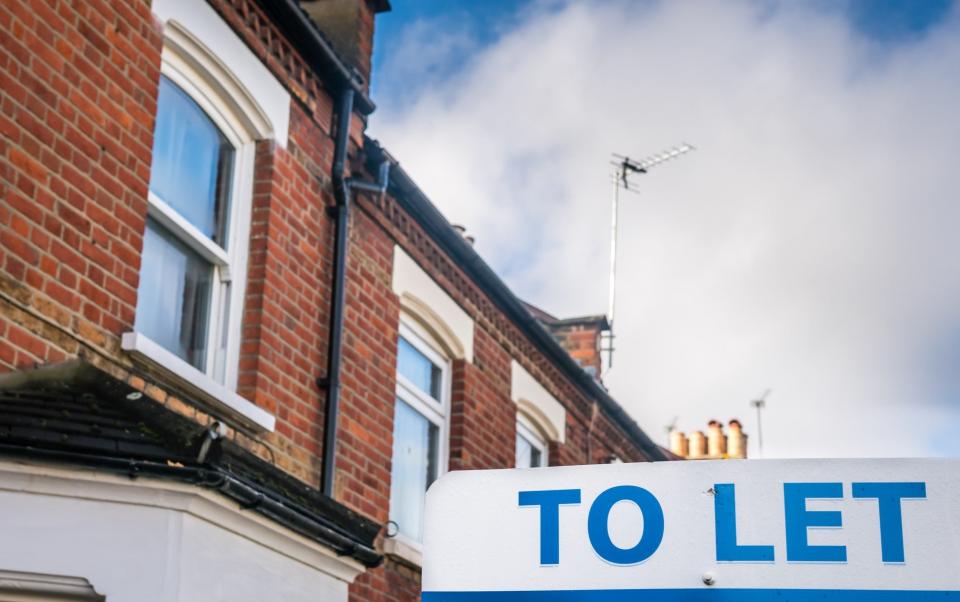Quarter of a million buy-to-let landlords face remortgage crisis

Nearly a quarter of a million buy-to-let landlords face a remortgage crisis over the next 12 months as the cost of borrowing soars.
Lenders have pulled 421 buy-to-let mortgage deals in two weeks as they rapidly reprice deals following large jumps in future interest rate expectations, according to data from Moneyfacts.
Average rates on buy-to-let loans have jumped by 0.45 percentage points in just 11 days, with the cost of a typical two-year fix now at 5.9pc.
It means that a landlord taking out an average £150,000 loan will have to pay an extra £675 per year in interest compared to if they had taken out a loan less than two weeks earlier.
Hundreds of thousands of landlords coming to the end of fixed rate deals face much higher leaps in their annual repayment costs as they refinance at double the rates they are used to.
An investor who took out a loan in June 2021 was able to fix at 2.96pc. If they were to remortgage a £150,000 loan today based on the average quoted rate, they would have to pay an extra £4,410 per year in interest compared to their old deal.
There are 231,816 buy-to-let mortgages on fixed rates due to expire in less than a year, according to UK Finance, the lender body.
Angus Stewart, chief executive of Property Master, a buy-to-let mortgage broker, said: “Our team cannot believe the rate of product churn. Increases of 0.5 to 0.75 percentage points are the norm. Some lenders have made two changes in the past week.
“Clearly this is going to put even greater pressure on landlords.”
More landlords are likely to quit the sector altogether, Mr Stewart warned, accelerating an ongoing exodus from the sector.
Adam Kingswood of Kingswood Residential Investment Management, a buy-to-let specialist in Nottingham, said the tight rental market means landlords have so far been able to offset jumps in their mortgage bills by raising rents.
However, many are now hitting the limit of what tenants will reasonably pay, forcing landlords to bear the higher costs.
“We have been having conversations with tenants saying: the landlord’s mortgage has gone up by £300 per month. If you can’t afford a rent increase, the landlord will probably sell up,” Mr Kingswood said.
The buy-to-let sector has been hit hardest by recent financial market jitters. While the pool of residential mortgage deals has shrunk by 9pc, the buy-to-let product count has dropped by 15pc.
Homeowners and first-time buyers are also facing higher costs. The average two-year fixed rate mortgage on Friday cost 5.64pc, up 0.31 percentage points in little more than a week to reach the highest level since January.
The jump means the annual cost of servicing a £200,000 home loan has climbed by £620 in 10 days.

 Yahoo Finance
Yahoo Finance 